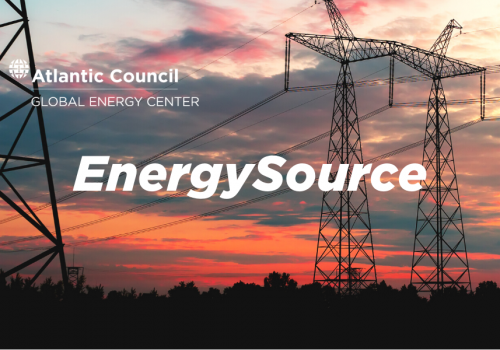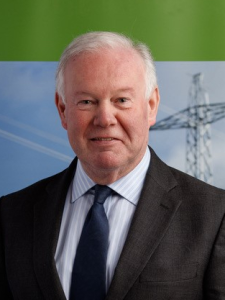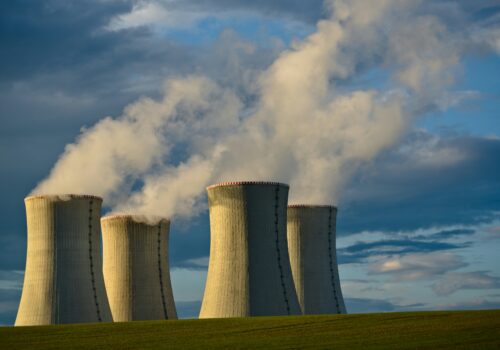After years in which the United States and Europe have been aligned in their energy policies, we are now seeing a divergence between two approaches that appear hard to reconcile.
To paraphrase US Energy Secretary Chris Wright, energy policy should be about enriching people, not making them poorer. With some of the largest gas resources in the world, the United States has shifted fundamentally to an approach which prioritizes low costs and economic growth over decarbonization.
STAY CONNECTED
Sign up for PowerPlay, the Atlantic Council’s bimonthly newsletter keeping you up to date on all facets of the energy transition.
This pivot is having consequences around the world. European—and especially British—energy prices are now a multiple of those in the United States. The risk to Europe is that major energy users will move away from the continent if those price differentials cannot be narrowed.
But while the US narrative is that cheap energy delivers security, in the United Kingdom (UK), the government insists that decarbonized energy delivers security. Britain is still seeing the consequences of the enormous price spikes following Russia’s full-scale invasion of Ukraine. The argument is that had the UK been less reliant on gas, the price increases would have been less dramatic.
While it seems that these two approaches at loggerheads, they are in fact possible to reconcile.
For years, many have spoken about the energy trilemma: the balance between security, affordability, and sustainability. It’s time to reframe that debate—and focus instead on energy abundance.
A decade ago, when the American shale revolution was beginning, the sheer enormity of gas production, combined with an inability at that time to export significant quantities, brought prices crashing down for US businesses and consumers.
Similarly, the global rollout of solar power has enabled the cost to be brought down to under 1 percent of what it was just a few years ago.
Abundance enables costs to come down. Abundance offers energy security. And abundance helps make space to decarbonize without penalizing consumers.
Different countries are abundant in different fuel stocks or technologies, so each country needs to play to its strengths. Consumers are best served by harnessing the resources which are most abundant and most affordable, rather than endlessly pursuing costlier resources just because they happen to be around.
The United States would understandably focus on gas, but that does not mean that all countries should do so. If a country lacks significant gas resources of its own, it is foolhardy to build an energy policy that relies on imported gas, especially from a single source, as the Ukraine war has so clearly shown Europe. To paraphrase Winston Churchill, security comes from diversity, and diversity alone.
Therefore, the UK and Europe need to look at where they have the most abundant resources and allow the genius of innovators and industry to work to drive those costs down.
For the UK, that could be offshore wind, where prices have dropped by two thirds in a decade. It also makes sense to continue to use Britain’s North Sea gas resources for as long as possible, as the original investment costs have long since been recovered. While the North Sea basin is in long-term decline, the rate of decline can be reduced with sensible, pro-business policies. The UK should then be applying carbon capture technology when the gas plants are run as baseload rather than as peaking plants, which operate for only a small number of hours per year.
In sunnier countries, solar is the answer. Nuclear, too, can provide energy abundance, especially if next-generation small and advanced modular reactors (SMRs and AMRs) are developed in sufficient quantities to deliver real economies of scale. Each country needs to chart it owns course, based on the resources and skills available to it.
The first element of energy policy should be to develop abundant and affordable resources. Where that is not be sufficient to meet demand at all times (as abundance is not necessarily the same as self-sufficiency) then the policy should be to secure alternatives in the most affordable way. Interconnection can bring cheap electricity from many hundreds of miles away. Imported gas—from reliable partners and backed by sufficient levels of domestic storage—provides resilience when the wind is not blowing and the sun is not shining. And as the cost of batteries continues to fall, they can provide short-term reserves at grid scale.
Policymakers’ rhetoric suggests a large gulf between the approaches in the United States and Europe. But just as there is no one-size-fits-all approach to every country’s needs, policy approaches must reflect the unique circumstances of individual countries.
Faced with the imperative to keep costs down, governments need to be wary about open-ended commitments to provide subsidies. In the UK, the contract for difference model provides price guarantees to enable large energy infrastructure to be built. But unlike a subsidy, when the wholesale price of electricity rises, the support drops away and even becomes negative. If subsidies are used, then there must be a clear degression from the outset to make sure that they are a mechanism for driving costs down rather than keeping them artificially high.
The cooperative optimism displayed at COP26 and COP28 is long gone. The response should be to rethink how to deliver the energy security the world needs in the most affordable way. The principle of abundance should be at the heart of it. Abundance enables countries with dramatically different supply and demand conditions to find common cause. There is security in diversity—and diversity alone.
Charles Hendry is a distinguished fellow of the Atlantic Council Global Energy Center and a former UK minister of state for energy.
MEET THE AUTHOR
RELATED CONTENT
OUR WORK

The Global Energy Center develops and promotes pragmatic and nonpartisan policy solutions designed to advance global energy security, enhance economic opportunity, and accelerate pathways to net-zero emissions.
Image: Oil refinery, 2018 (Pixabay) https://pixabay.com/photos/refinery-oil-industry-gas-3613526/





